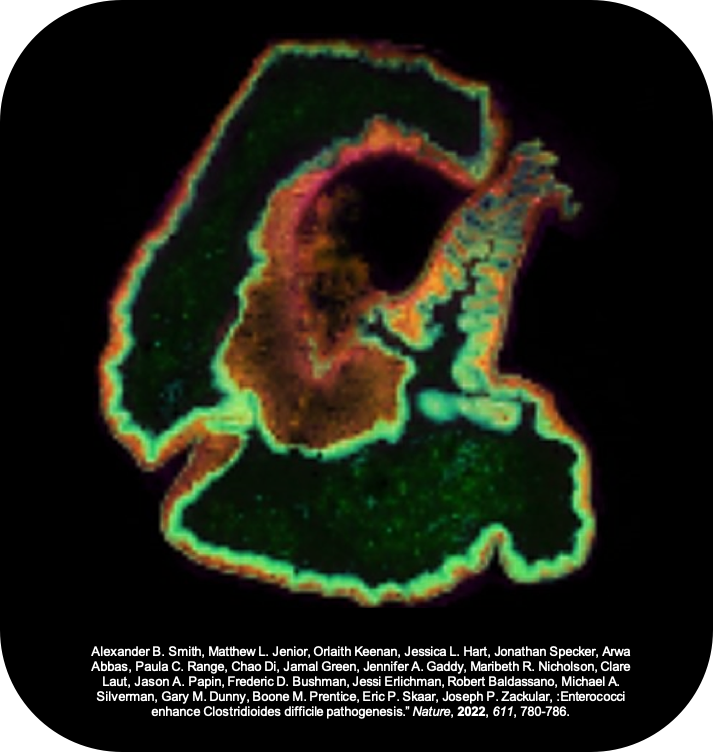The gut microbiome is increasingly recognized as a complex and polymicrobial ecosystem that effects broad aspects of human health, including our resistance to invading pathogens, controlling our immune system responses, metabolizing dietary and pharmaceutical compounds, influencing our chances of developing diabetes, and even effecting brain chemistry. Interactions between invading pathogens and our gut microbiota are thought to be important during infection, but there are few examples illustrating how these interactions can influence the severity of the invading pathogen. In collaboration with several investigators around the country, our team is leveraging spatial -omics strategies to understand the conditions impacting the outcome of infections, the risk for recurrence, and the factors impacting successful treatments.

Collaborators
Prof. Joseph Zackular, Perelman School of Medicine at the University of Pennsylvania – Zackular Lab
Dr. Michael Silverman, Children’s Hospital of Philadelphia – Silverman Lab
Dr. Frederic Bushman, Perelman School of Medicine at the University of Pennsylvania – Bushman Lab
Dr. Drew Weissman, Perelman School of Medicine at the University of Pennsylvania – Weissman Lab
Prof. Neal Hammer, Michigan State University – Hammer Laboratory
Current Funding: NIAID (U19 AI174998), NIDDK (R01 DK133453-01A1)

